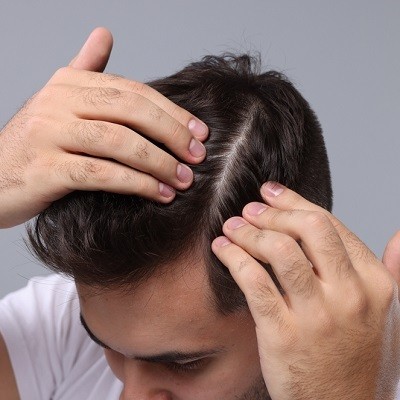Amebiasis is a parasitic infection caused by Entamoeba histolytica, often contracted through contaminated food or water. Although treatments like Nizonide (commonly used as a nitazoxanide-based medication) effectively clear the infection, recovery requires proper care to restore health and prevent recurrence. Here’s a comprehensive guide to staying healthy after an amebiasis infection.
1. Follow Your Doctor’s Treatment Plan
After being diagnosed with amebiasis, adhering to the prescribed treatment regimen is vital. Nizonide, which targets intestinal parasites, is commonly prescribed for treating amebiasis. Ensure that you
- Take the medication as directed without missing doses.
- Complete the full course, even if symptoms improve, to prevent a relapse or incomplete eradication of the parasite.
- Inform your doctor about any side effects.
- Consult your physician for follow-up tests to confirm that the infection has been cleared.
2. Maintain Proper Hydration
Amebiasis often causes diarrhea, leading to dehydration. Restoring and maintaining hydration is essential for recovery
- Drink plenty of clean, filtered water.
- Use oral rehydration salts (ORS) to replace lost electrolytes.
- Include hydrating foods such as soups, coconut water, and fresh fruit juices.
- Avoid beverages that can irritate the stomach, such as alcohol, caffeine, and carbonated drinks.
3. Follow a Nutrient-Rich Diet
The infection can weaken your body and digestive system. A nutrient-dense diet promotes recovery.
a. Eat Easily Digestible Foods
Opt for plain rice, bananas, boiled potatoes, and yogurt to soothe your stomach.
Avoid spicy, oily, or processed foods.
b. Focus on High-Protein Foods
Include lean meats, eggs, fish, and legumes to repair tissues and boost immunity.
c. Incorporate Probiotics:
Yogurt, kefir, and probiotic supplements help restore gut flora balance disrupted by both the infection and medication.
d. Add Immune-Boosting Foods
Consume citrus fruits, green leafy vegetables, and nuts for vitamins and antioxidants.
4. Prioritize Hygiene Practices
Amebiasis is highly contagious, and reinfection can occur if hygiene is neglected. Follow these steps
- Wash hands thoroughly with soap and water after using the restroom, handling food, or coming into contact with potentially contaminated surfaces.
- Avoid sharing utensils, towels, or personal items.
- Clean and disinfect frequently touched surfaces like bathroom fixtures.
5. Avoid Contaminated Food and Water
To prevent reinfection, be cautious about your food and water sources
- Drink only boiled or filtered water. Avoid tap water in areas with poor sanitation.
- Wash fruits and vegetables thoroughly before eating.
- Avoid raw or undercooked foods, especially seafood.
- Stick to bottled beverages and ensure ice is made from safe water.
6. Rebuild Gut Health
The use of antiparasitic medications like nizonide can affect the natural balance of your gut microbiome. To rebuild it
- Take prebiotics (found in foods like garlic, onions, and bananas) to feed beneficial bacteria.
- Include fermented foods like sauerkraut, kimchi, and miso in your meals.
- Consult your doctor about probiotics tailored to your needs.
7. Manage Stress
Stress can weaken your immune system, making it harder for your body to fully recover. Consider incorporating relaxation techniques into your daily routine
- Practice yoga or meditation.
- Engage in light exercise such as walking to boost endorphins.
- Ensure adequate sleep to support the body’s healing processes.
8. Monitor for Recurrence
Even after completing treatment, some symptoms may persist or reappear. Keep an eye on signs of recurrence, such as
- Persistent diarrhea.
- Abdominal pain or bloating.
- Fatigue or weight loss.
Report any recurring symptoms to your doctor immediately for prompt intervention.
9. Strengthen Your Immune System
A robust immune system can help prevent future infections. Strategies include
- Regular exercise to enhance circulation and overall vitality.
- A balanced diet rich in antioxidants, vitamins, and minerals.
- Supplementation with immune-supportive nutrients like zinc, vitamin C, and vitamin D, as advised by a healthcare provider.
10. Educate Yourself and Others
Understanding the nature of amebiasis and how it spreads is key to preventing reinfection and protecting others. Share these tips
- Emphasize the importance of clean drinking water and proper sanitation.
- Encourage friends and family to practice good hygiene.
- Advocate for better public health measures in communities where amebiasis is prevalent.
11. Travel Precautions
If you travel to regions where amebiasis is common, take extra precautions
- Avoid consuming raw street food or unpeeled fruits.
- Only use bottled water for drinking and brushing your teeth.
- Carry a trusted water purification method, like portable filters or purification tablets.
- Consider preventive medications if advised by a healthcare professional.
12. Be Patient with Your Recovery
Full recovery from amebiasis may take time, especially if the infection caused significant intestinal damage. Stay vigilant and proactive
- Keep all follow-up appointments with your doctor.
- Discuss any lingering symptoms or concerns.
- Gradually reintroduce normal dietary and physical activities as your strength returns.
Conclusion
Recovering from an amebiasis infection is a multi-step process that involves following prescribed treatments, including Nizonide, and making lifestyle adjustments to restore health and prevent reinfection. By focusing on proper hydration, nutrition, hygiene, and immune system support, you can ensure a smooth recovery and long-term well-being. Stay informed, proactive, and committed to maintaining a healthy lifestyle, both for yourself and those around you.




